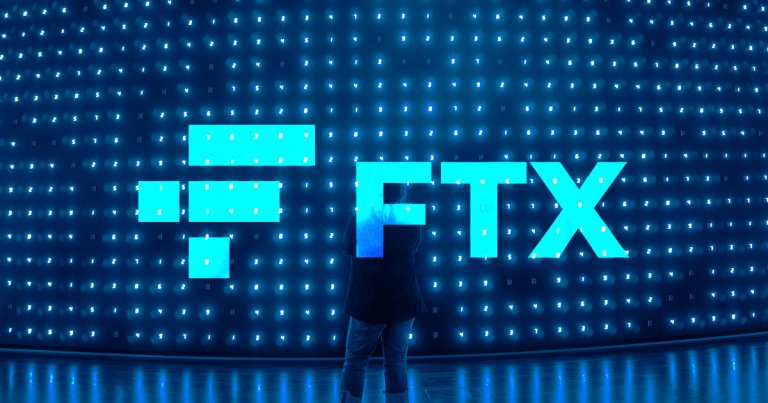 FTX blasted after “creating tokens” to capture $1 million in value; but that’s what DeFi is supposed to be
FTX blasted after “creating tokens” to capture $1 million in value; but that’s what DeFi is supposed to be FTX blasted after “creating tokens” to capture $1 million in value; but that’s what DeFi is supposed to be

Cover art/illustration via CryptoSlate. Image includes combined content which may include AI-generated content.
An incident earlier this week showed what peak Decentralized Finance (DeFi) could look like — one where the smartest survive and rent-seekers are eradicated immediately.
Gaming the game
On June 25, Predictions Exchange tweeted FTX was creating tokens and listing them on CoinGecko, while supplying its own liquidity for capturing Balancer (BAL) distribution. The tweet noted FTX harvested over 50 percent of last week’s BAL distribution:
.@FTX_Official is currently gaming $BAL distribution (on pace to receive >50% of this week's distribution).
Balancer uses @coingecko price feed to calculate liquidity in pools. Big players can create assets & price them as they wish to inflate numbers.https://t.co/zIESmky3NO pic.twitter.com/YE7tGV0Av4
— Predictions Exchange (@PredictionsExch) June 24, 2020
At current market rates, the BAL value is well over a million dollars — meaning easy money for anyone who goes through the loops for attempting the above.
To explain simply, Balancer is a DeFi protocol that creates “pools” of various cryptocurrencies and promises quick token swaps between different coins. BAL distributions, which started on Tuesday this week, are calculated by the liquidity locked on a certain pool with values calculated from CoinGecko’s data.
Seeing opportunity in the above, what FTX did afterward was either borderline fraud or pure genius — depending on what lens one puts on.
The exchange issued USDTBEAR and USDTHEDGE tokens to CoinGecko, and then used their quant prowess to add over $100 million in liquidity to a Balancer pool in a 50-50 split between the two tokens.
$100 million worth of pooled funds dwarfed other pools — which amounted to few or tens of millions each. This, in turn, allowed FTX to received over 50 percent of all distributions, even if its pool was worthless.
But this led to swift backlash.
Governance introduced
The topic was quickly picked up on Balancer’s discord channel, where users voiced introducing a token “whitelist” to control the distribution of BAL. Balancer devs seemed to halt distribution shortly afterward, preventing FTX to secure its rewards from the system.
FTX co-founder Sam Bankman-Fried took to Twitter to speak against the censorship of Balancer. He noted a lot of untraded ERC20 tokens issued pools on their funds, leading to a sort of “liquidity mining” within the ecosystem.
5) Well, the options were:
a) get rid of the BAL distributions
b) restrict the set of coins that would be eligible
c) (b), and also retroactively apply it
d) do nothingWhat's the right thing for the protocol?
— SBF (@SBF_Alameda) June 24, 2020
He noted liquidity mining was a “stupid” proposition similar to “transmining,” or creating “effectively negative fees to create the impression of activity.” However, the nature of DeFi prevents others from censoring the governance, said Bankman-Fried:
“In DeFi, you don’t enact arbitrary retroactive rules. In fact, in pure DeFi you can’t enact retroactive rules, and are really limited even in forward-looking ones.”
Balancer held a community vote (without taking BAL tokens holdings into consideration), and said they would introduce a whitelist to prevent market gaming:
The idea is two-fold:
1) changes to the mining rules should not be retrospective
2) attempts to game the distribution process (questionable liquidity provisioning) should be dealt with by the governance as promptly as possible.
— Balancer Labs (@BalancerLabs) June 24, 2020
Needless to say, Bankman-Fried was not impressed. The ex-Susquehanna trader said protocols like the above are a part of “what makes DeFi so hard to do well,” adding that permissionlessness is “a double-edged sword.”
DeFi: much-needed or a profit tool?
Some commentators on relevant Twitter threads questioned the need for liquidity pools and products in DeFi, adding that most of today’s popular DeFi frameworks exist only to facilitate financial gains and not real-world utility.
Others on Twitter suggested FTX was committing “theft,” in terms of not providing any value to the broader DeFi community or providing true liquidity to an asset.
However, this begs the question of what DeFi really is — in its truest terms, no governance must exist and participants are free to exploit loopholes as long as they exist. The latter may not seem ethical, but it embodies what a lack of censorship truly means.
Meanwhile, investors must understand that DeFi yields and gains do not come without significant risks, and one must invest only what they can afford to fully lose.































































































